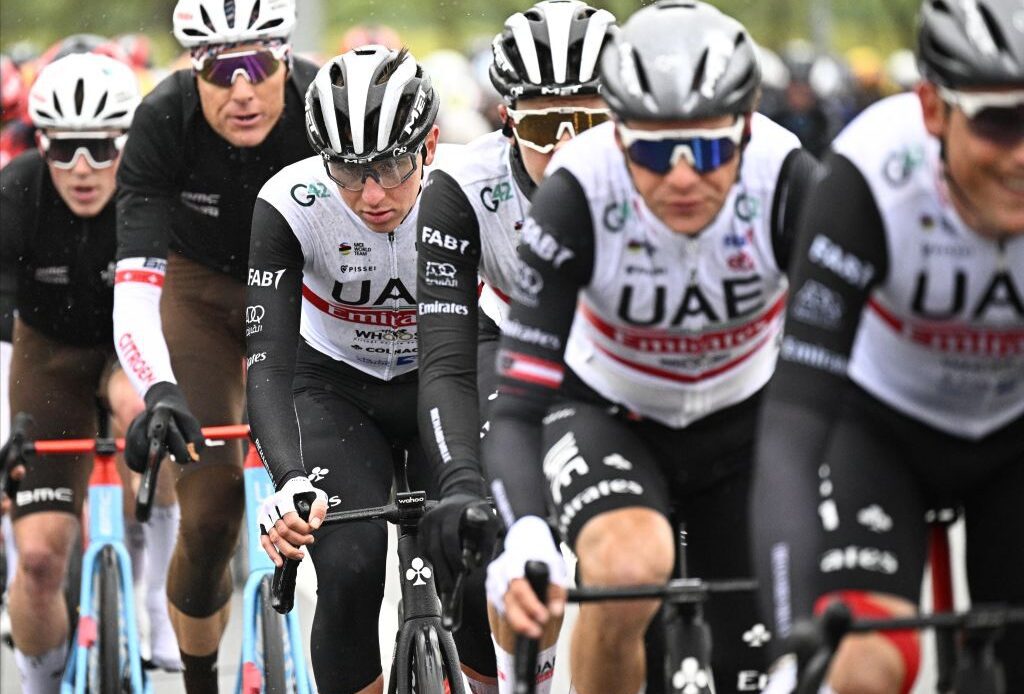Bicarbonate of soda has become a big talking point this Spring, with the everyday baking powder linked to significant performance benefits, but the hype has been debunked by a coach of the season’s outstanding rider, Tadej Pogačar.
The physiologist Iñigo San Millán, who is head of performance at UAE Team Emirates, explained this week why he believes bicarb “doesn’t work”, arguing that if it could remove lactate from muscles it should also, in theory, be able to cure cancer.
Bicarbonate of soda hit the headlines recently when it was linked to Jumbo-Visma’s stunning run of success, with the team’s nutrition partner Maurten recently releasing a new ‘Bicarb System’ that supposedly allows the body to absorb the bicarb without any stomach-related side effects.
However, many riders and managers downplayed any hype, with one telling Cyclingnews it was “pure marketing” while others pointed out that bicarb has been used as a supplement for decades, with the perceived benefit of flushing lactate during intense efforts.
San Millán, though, has gone a step further, questioning not simply the new ‘Bicarb system’ but bicarb per se.
“First of all, bicarbonate is one of the oldest supplements out there. It has been used for decades for this purpose. Like many supplements that don’t work, they tend to resurface 20-30 years later,” he wrote in a Twitter thread (opens in new tab).
“Blood pH is 7.35-7.45 and one of the most sacred homeostatic states for human body. 3 main elements ‘threaten’ blood pH: CO2, electrolyte concentrations and weak acid concentrations. During high-intensity exercise and pathological stress, these elements are threats to blood pH.
“Our body possesses a large pool of bicarb to constantly defend the physiological & sacred pH of 7.35-7.45. This is key as if your blood pH rises or falls over those ranges you could simply die. Hence, exogenous bicarb will normally be neutralized as blood pH cannot go below homeostatic levels.”
San Millán went on to explain that the pH in skeletal muscle during high-intensity exercise can dip due to lactate, but that there was only an “extremely small” chance of bicarb reaching that muscle to neutralise it.
“An example is cancer cells which can have a pH ~6-7 (similar to exercising muscles),” he said, drawing on his significant research experience in the cancer field.
“The more aggressive the cancer is, the lower the pH. This is mainly caused by lactate which is key to the very famous nowadays ‘Tumor…
Click Here to Read the Full Original Article at CyclingNews RSS Feed…

